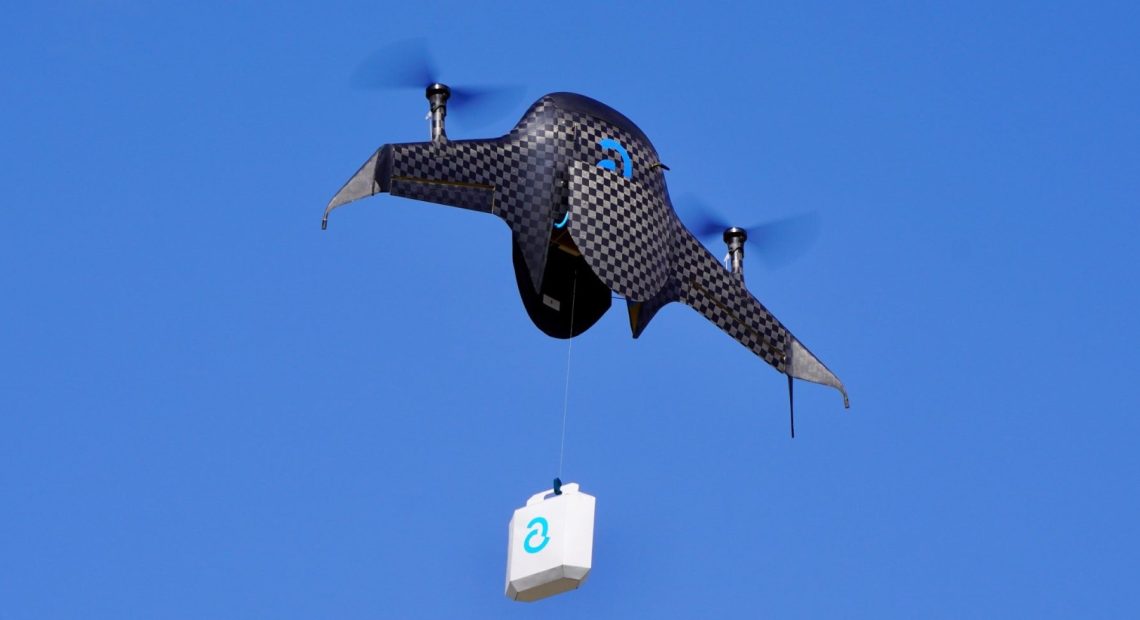Airbound secures $1.7 million for unique delivery drone technology development

Indian firms eyes last-mile logistics sector
Airbound, an innovative drone technology startup based in Bengaluru, India, has announced a $1.7 million seed funding round led by Lightspeed, a global multi-stage venture capital firm headquartered in California, USA.
The investment aims to support the development of what Airbound claims will be the world’s most efficient delivery drone, leveraging its proprietary blended wing body tailsitter design, TRT.
The drone delivery sector has historically faced regulatory hurdles and high operational costs, hindering its potential as a mainstream solution for last-mile logistics. Airbound’s TRT design promises to tackle these challenges by creating the lightest and safest delivery drone available, aiming to slash delivery costs to mere cents per package.
The innovative methods for carbon fibre production have enabled Airbound to reduce the drone’s airframe weight from 2.7kg to just 400 grams.
Naman Pushp, Founder and CEO of Airbound, said: “We scrutinised every vehicle system to reduce weight, enhance safety and reliability, and maximise efficiency.”
Last-mile delivery
According to Pushp, Airbound is committed to revolutionising last-mile delivery through its next-generation drones, which aim to reduce delivery costs by over 90%. Airbound condenses the necessary hardware by addressing key technological challenges and enhancing safety, scalability, and operational cost-effectiveness.
Pushp’s journey began as a high school project, and his passion for drones led him to decline an offer from Carnegie Mellon University to focus on his startup. With initial backing from gradCapital, he spent four years perfecting the TRT, enhancing carbon composite manufacturing, aerostructures, and advanced control systems. The result is a drone over three times lighter than current alternatives and boasts four times aerodynamic efficiency, drastically lowering upfront and operating costs.
Airbound’s unique efficiency-first approach sets it apart from competitors, many of whom prioritise speed and adapt existing drones for niche markets. Initially, Airbound will concentrate on medical deliveries, such as transporting blood samples from healthcare centres to laboratories. Once their system proves successful at scale, the company plans to expand into food and grocery deliveries, where cutting logistics costs can significantly boost profitability.
Hemant Mohapatra, a partner at Lightspeed, commented on the investment: “Drones are the future of deliveries, and we are optimistic about the potential of this game-changing technology to revolutionise logistics.
“Our investment in Airbound aligns with our mission to support founders who identify market gaps and innovate products to address them. We are excited to partner with Naman and believe his innovation will redefine delivery logistics.”
The timing of Airbound’s technology is fortuitous. Many of the previous regulatory and technological barriers have been addressed, and public interest in drone delivery continues to rise. Airbound’s advancements have now overcome the primary challenge of making drone delivery economically viable.
Lightspeed accelerates disruptive innovations across various sectors, including enterprise, consumer, health, and fintech. Over the past two decades, Lightspeed has supported hundreds of entrepreneurs, contributing to the growth of over 500 companies globally, and currently manages $25 billion in assets across its platform.
Featured image: Airbound’s TRT design aims to create the lightest and safest delivery drone available. Credit: Airbound
Last Updated on 5 months by Arnold Pinto













